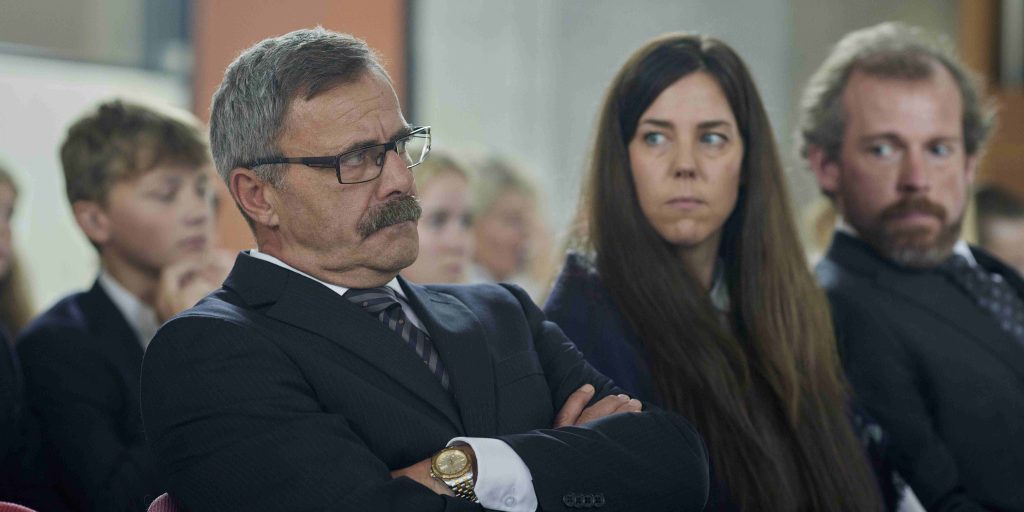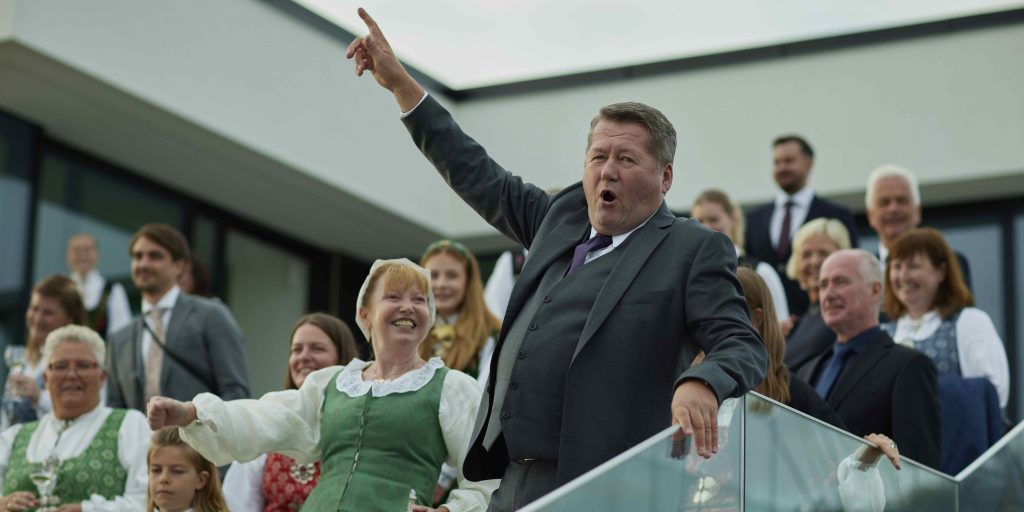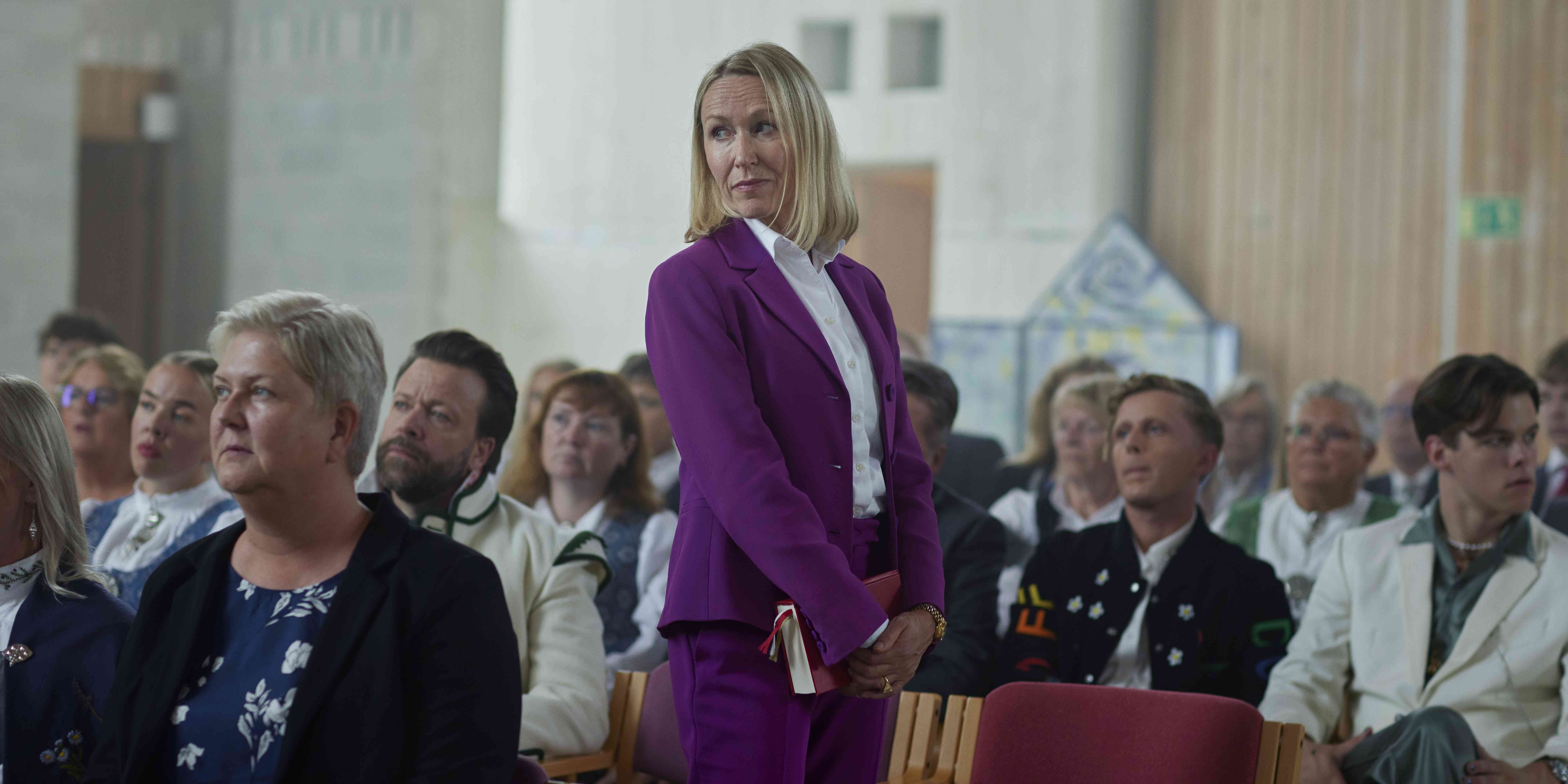The Netflix comedy-drama show, ‘Billionaire Island,’ delves into the cutthroat side of Norway’s fish farming industry through the eyes of two competing families. Created by Anne Bjørnstad and Eilif Skodvin, the story follows Julia Lange, the ruthless head of Marlax who plans to take over her local rival’s business to establish herself as the global leader in the salmon production industry. Throughout the narrative, a deep dive into the rivalry between the two families sheds some light on the traditions perpetuating their enmity and their interpersonal relationships with their loved ones.
With money and influence at stake, ‘Billionaire Island’ tells a grounded story about ambition and intrigue in the backdrops of a rural Norwegian town. The show sharply satirizes the dysfunctional nature of rich, influential families and their day-to-day antics. As the two rival families engage in corporate warfare to meet the world’s seafood demands, a deeper and more intimate portrait emerges of wealth and its eccentricities. Therefore, the show’s central subject is sure to prompt questions in viewers regarding the authenticity and whether the show itself is based on a true story.
Billionaire Island is a Dramedy About Norway’s Fishing Industry
Originally titled ‘Milliardærøya,’ ‘Billionaire Island’ is a fictional story penned by Anne Bjørnstad, Eilif Skodvin, Levi Dubland, and Jadranko Mehic. The show revolves around Norway’s fishing industry, specifically dealing with the Atlantic salmon farming and distribution business and the two fictional families who run it. Throughout the narrative, viewers are provided a glimpse into the corporate world and its entailing complexities like betrayal, under-the-table deals, ambition, familial dynamics, and the perils of a high-functioning lifestyle. The story kicks off after Julia Lange, the ruthless head of Marlax, launches a hostile takeover of her rival business, Meyer Fjordbruk, owned by Gjert Meyer.

Subsequently, a series of events are set in motion as both families try to wrest control over who becomes the biggest producer of Atlantic salmons in the world. In reality, Norway is not only one of the largest seafood exporters around the globe but also the world’s leading exporter of Atlantic salmons, which is akin to the fictional world presented in ‘Billionaire Island.’ The fishing industry plays a very prominent role in the country’s economy and is vital to its employment and opportunity creation.
According to reports, fish farming in Norway can be traced back to the 1970s, when an ocean-farmed Norwegian salmon was bred in floating sea cages. Since then, more varied and advanced techniques have come into practice to keep the fish farming business a state-of-the-art practice. In a press statement, creators Anne Bjørnstad and Eilif Skodvin said, “Over the last few decades, fish farming has changed both the Norwegian coast and international food culture. The time feels right for a television drama about the operators in the industry, and it’s amazing that a global streaming service like Netflix has the guts to tell such a locally grounded story.”
Billionaire Island Places Emphasis on Its Cutting Boardroom Drama and Familial Themes
In the show, both Marlax and Meyer Fjordbruk play a vital role in contributing to the overall economy and welfare of Brima Island, the small coastal community where the narrative is set. The series not only zeroes in on the affairs between the families and their businesses, but it also provides a well-crafted satire of contemporary society. To that end, wealth and ambition play a big part in the tension between key characters as they walk through sterile boardrooms, making major decisions.

Parallels can be drawn to other sharp dramas like ‘Succession,‘ owing to its commentary on familial wealth, power dynamics, dysfunctional bonds, and privilege. The story also leans into the rivalry and competition between Julia Lange and Gjert Meyer, which are also recurring motifs in the HBO show. ‘Billionaire Island’ paints a dramatic, high-stakes version of events based around a battle of wills. In many ways, the show can be viewed as a war story, except most of the fights take place through careful maneuvering.
The marriage between Norway’s seafood export business and dysfunctional family relationships creates a unique tone that is rarely found. Moreover, the intricacies of family businesses are brought to the fore with nuance and precision, even showcasing how the intersection between personal and professional lives can complicate matters beyond the pale. Its underlying reality may be based on truth. However, its sharp writing and deft execution make it an intriguing exploration of an unseen industry.


You must be logged in to post a comment.